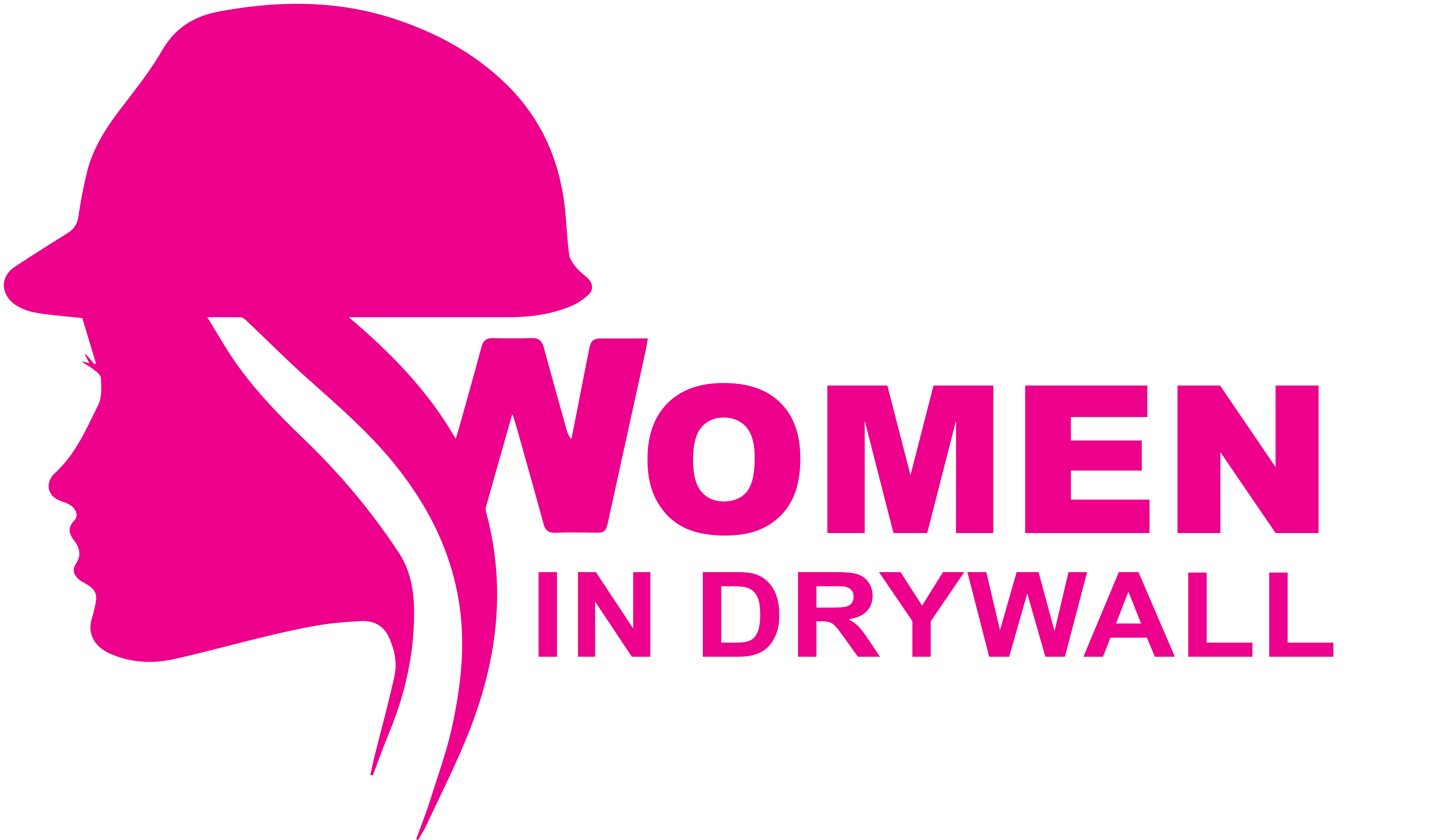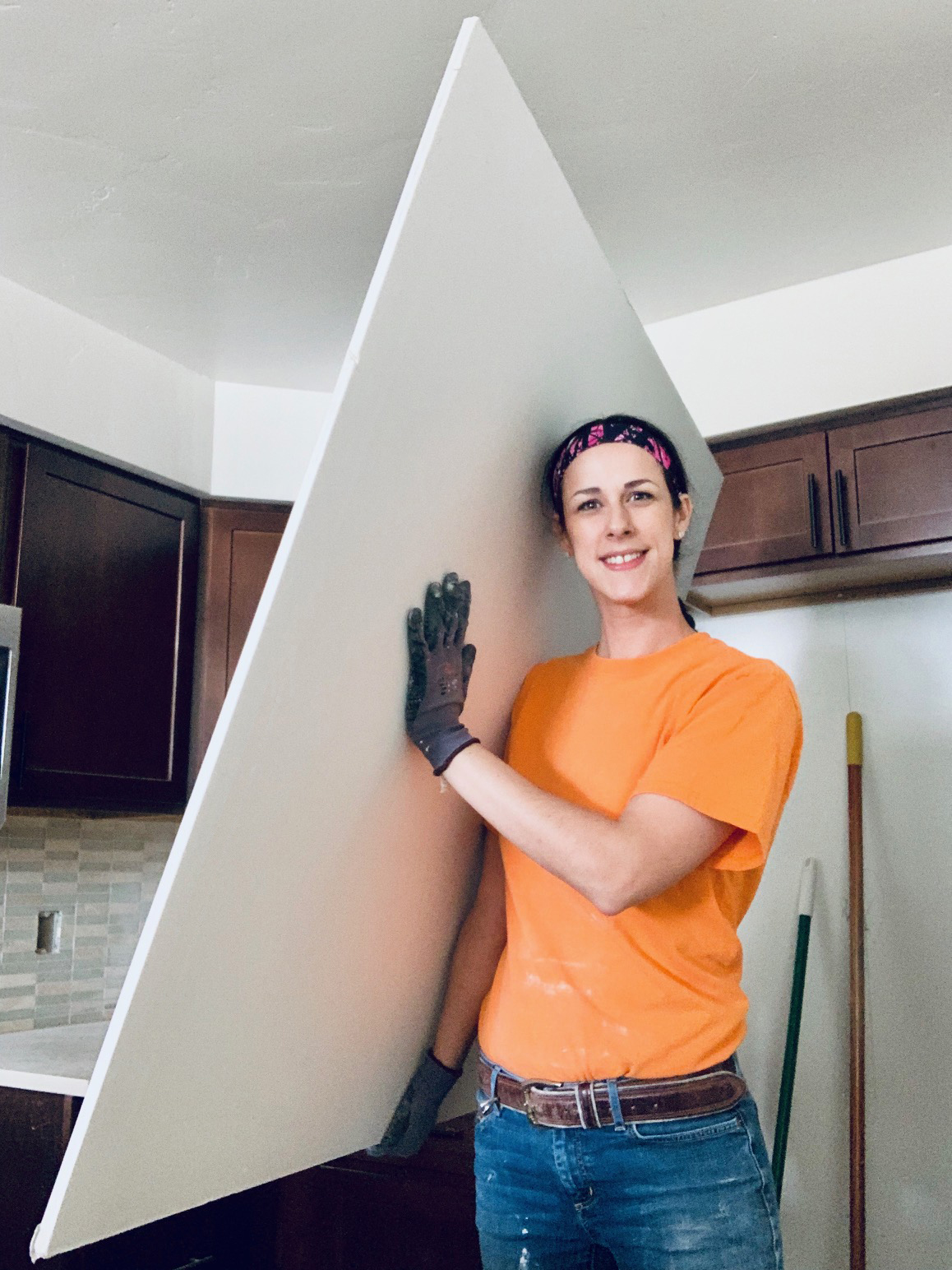 As anyone in the industry can tell you, there’s a real shortage of skilled labor in drywall, and in the trades generally. What most people don’t talk about, though, is how infrequently we see women in drywall — and what an untapped resource they represent for this industry.
As anyone in the industry can tell you, there’s a real shortage of skilled labor in drywall, and in the trades generally. What most people don’t talk about, though, is how infrequently we see women in drywall — and what an untapped resource they represent for this industry.
The fact is, construction is not an industry that has historically been very friendly or welcoming to women, and if we want to get more women involved (and we should want that), we need to make it a place that appreciates, respects and welcomes them. One of the best ways to do that is look to the women who are already working the job and use them as role models to encourage the next generation of young women to get into the trades.
In this series, we're shining a spotlight on their stories.
A 'Jane-of-all-trades'
 Jessica Serna is, in her own words, a "Jane-of-all-trades" for the world of drywall. She can step onto a jobsite and put up a wall from start to finish, from framing to final taping. Where many drywall finishers find themselves at the mercy of the framers who have already come and gone — sometimes leaving behind, let’s just say, not-so-straight studs — Jessica is able to chart her own path.
Jessica Serna is, in her own words, a "Jane-of-all-trades" for the world of drywall. She can step onto a jobsite and put up a wall from start to finish, from framing to final taping. Where many drywall finishers find themselves at the mercy of the framers who have already come and gone — sometimes leaving behind, let’s just say, not-so-straight studs — Jessica is able to chart her own path.
"I frame it like I'm going to hang it, like I'm going to tape it, like I'm going to finish," Jessica told us over a video call from her car, just outside an active commercial jobsite. "I've been on jobs from the beginning: framing, then the ’rock comes, then hanging ’rock, taping it, until almost the very end. From texture, taking down all the masking … Now my main thing I'm working on is framing, steel stud framing. I'm kind of a Jane-of-all-trades. I kind of bounce around."
Located in central Oregon, Jessica works in commercial construction with a company called CCI Bend, LLC, where she is typically the only woman in a nearly 50-person crew. She has risen quickly through the ranks there, going from laborer to apprentice  framer in a fairly short time. Speaking with her, it’s not hard to see why she’s come so far so quickly — she speaks confidently, isn’t one to mince words, and she works efficiently, with a "work smarter, not harder" mantra.
framer in a fairly short time. Speaking with her, it’s not hard to see why she’s come so far so quickly — she speaks confidently, isn’t one to mince words, and she works efficiently, with a "work smarter, not harder" mantra.
The last few years may have been pretty action-packed for Jessica, but her journey into the trades began as run-of-the-mill as an acquaintance who was looking for some extra hands for cleanup on a project.
"It was kind of a fluke," Jessica says of the day she first entered the drywall trade. "A next-door neighbor needed someone to help them scrap some drywall, on a commercial job, of course, and asked if I would be interested. My boyfriend said, 'I give you about two weeks that you can last.' On Valentine's Day, I'll be three years working drywall — so I'd say I lasted!"
'I Built That!'
On any given day on a jobsite, you may find Jessica standing 24-foot studs, or putting up a ceiling grid, or getting muddy while finishing some drywall. Whatever task she’s working on, you can probably count on one thing: she’ll do more than she did yesterday.
"We set a goal, my partner and I, each day for what we're going to get done," Jessica said. "We surpass that every day, and that is the goal — to get past where you set out.
 "To be able to walk into a blank room — whether it's concreted or not, sometimes it's not even ready for us — and within a couple hours, there's a wall. Next, it's white, then everything comes together. I think it's very rewarding to frame, and see, 'I built that!'"
"To be able to walk into a blank room — whether it's concreted or not, sometimes it's not even ready for us — and within a couple hours, there's a wall. Next, it's white, then everything comes together. I think it's very rewarding to frame, and see, 'I built that!'"
When Jessica’s not working in drywall, she’s working just as hard at home as a mother of two young daughters. That takes a ton of blood, sweat and tears, but she wouldn’t have it any other way: in the trades, she’s found a career path that makes her truly happy. Though Jessica tells us she still has a ton to learn about the drywall trade — "My job is to be a sponge," she says — that sense of satisfaction in seeing a project to its completion can’t be beat.
Women in Drywall: 'Get a Badass Pair of Boots and Do It'
In speaking with Jessica for about an hour, it became clear that, as confident as she may be now, she hasn’t always been this way. Multiple times throughout our conversation, she brought up her distaste for sticking out like a sore thumb on a construction site, especially in the early days of her drywall career.
 It’s for that reason she’s been hesitant to complain about anything, and always shows up on time and on her toes, with all her gear ready to go. By nature of being the only woman around, she says, she feels she has more to prove, and even minor mistakes could make her stick out even more than she already does. Jessica just wanted to feel like a normal part of the team.
It’s for that reason she’s been hesitant to complain about anything, and always shows up on time and on her toes, with all her gear ready to go. By nature of being the only woman around, she says, she feels she has more to prove, and even minor mistakes could make her stick out even more than she already does. Jessica just wanted to feel like a normal part of the team.
But as she gained confidence in the quality of her work, she also gained the confidence to speak up about the unique challenges that she faces on a commercial construction site — challenges that may not even occur to many men in the trades.
"Hands down, the port-a-johns, port-a-potty, whatever you want to call it — that sucks," said Jessica when asked about the day-to-day problems she sees as a woman in construction. "It sucks! It's not fun any time of the month, let alone our 'special time.' There's no situations for women. I think OSHA laws, maybe there's supposed to be a port-a-potty for a woman, blah blah blah. There's not. There never is. That's probably the hardest thing for me to get over, just being a woman onsite and not having the necessary sanitized areas for us. I've gotten over it more. You just do what you've got to do and keep going.
 "You don't want to stand out in that sense that you need more help, or you need something as a woman, but we do, and it should be onsite for us. Tools aren't made for us, tool belts. They say there's a few tool belts for women — I've gone through them. They don't fit well. My hips bruise out. I have hips! Boots don't fit. There's a lot of things that aren't made for us women. Suspenders — we have a chest! Everything is just so much different for a woman. Little things that I guess you don't necessarily think of until you're doing it."
"You don't want to stand out in that sense that you need more help, or you need something as a woman, but we do, and it should be onsite for us. Tools aren't made for us, tool belts. They say there's a few tool belts for women — I've gone through them. They don't fit well. My hips bruise out. I have hips! Boots don't fit. There's a lot of things that aren't made for us women. Suspenders — we have a chest! Everything is just so much different for a woman. Little things that I guess you don't necessarily think of until you're doing it."
To get to a place where seeing women on construction sites is a more normalized experience, it will take women like Jessica — and all the other people we’ve spoken to for our Women in Drywall program — who show up and speak up. Sometimes, sticking out like a sore thumb can go a long way toward progress.
These days, backed by her supportive employer, Jessica has embraced her womanhood, both while she’s finishing with a bucket of mud and when she’s framing with massive steel studs ("big-timin'," she calls it), wearing a bright-pink hardhat while she does it. And when she shows up on a new jobsite, she says she typically asks the hard questions right away, like where their female facilities are. It’s through this kind of visibility and grit that future tradeswomen will be more confident working in drywall from day one.
 "I do believe trades bring out such strong confidence in women, especially women, empowering them in a male-dominant industry, that you can do the same thing," says Jessica. "I'm proud of being a female onsite.
"I do believe trades bring out such strong confidence in women, especially women, empowering them in a male-dominant industry, that you can do the same thing," says Jessica. "I'm proud of being a female onsite.
"Get a badass pair of boots and do it. Don't hold back. Get yourself ready. Prepare yourself however. Do it. I've made a lot of poor decisions that set me up for being very self-conscious before I started in this industry. I was very quiet. Now things have changed quite a bit being onsite. I'm a very confident woman, and I can walk on any commercial site, find out who I need to talk to, what I need to do and achieve that. I stand out on sites [in] a good way now. They know who I am. They want me onsite. They know I can complete it. They know I'm clean, efficient. I think that women give a special touch to construction sites ... Do it. Do it! That’s all I can say!"
